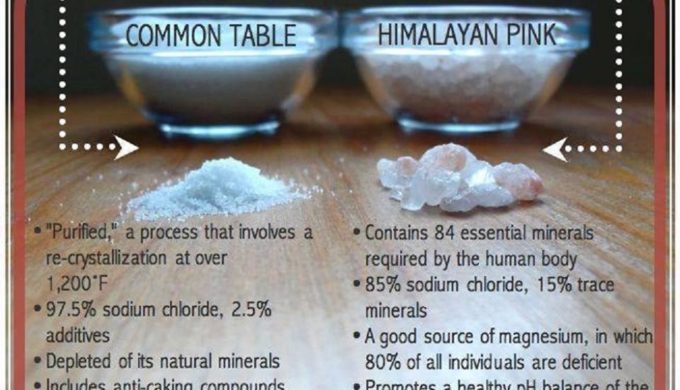One of the best things you can do for your everyday health is to eat less salt. Just ask your doctor. But food simply does not have a robust flavor unless it is salted or does it? Nearly all food flavors respond to the addition of other ingredients when being cooked, so what to do if you back off sodium? Don’t quit, but back off of using so much and use the right kind of unprocessed salt.
The worst sodium you can use is commercially processed with bleaching, leaching, and then adding back in commercially prepared products that are supposed to be good for you. Other foodstuffs such as bleached flour, bleached sugar, bleached cornmeal and other products treated with these identical processes lose the beneficial nutrition they originally contained, and science is now determining, for public information, all the long-term harm being done to our bodies from these detrimental processes. Now, let’s get back to herbed salt.
Photo:
Facebook/Nadurra-Catherine Bullard
According to an article by Dr. Edward Group in the Global Healing Center, “‘Table Salt‘ is a manufactured form of sodium called sodium chloride. While similar to naturally occurring rock, crystal, or sea salt, table salt merely mimics the taste of these elements.”
Dr. Group tells us that natural salt begins to lose important natural elements during processing. “Table salt is created by taking natural salt (or crude oil flake leftovers) and cooking it at 1200° Fahrenheit. Once the unprocessed salt is heated up to this temperature, it starts to lose the majority of the eighty important elements that are naturally occurring.”
So what is in table salt, exactly? Dr. Group explains, “Commonly purchased iodized salts, available at super markets or sitting on the table of your favorite restaurant, have synthetic chemicals added to them. These chemicals include everything from manufactured forms of sodium solo-co-aluminate, iodide, sodium bicarbonate, fluoride, anti-caking agents, toxic amounts of potassium iodide and aluminium derivatives. It may come as a shock, but most table salt is not only unhealthy, but can sometimes be toxic.”
Page 1 of 3:123Next Page »




